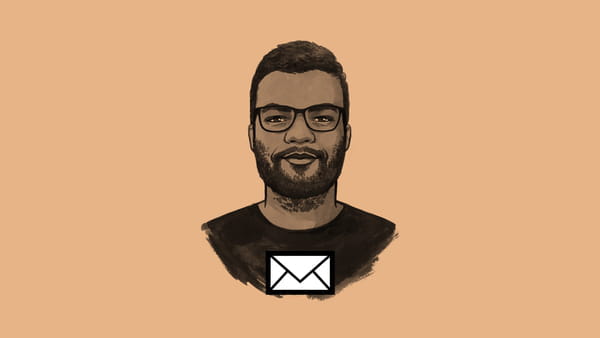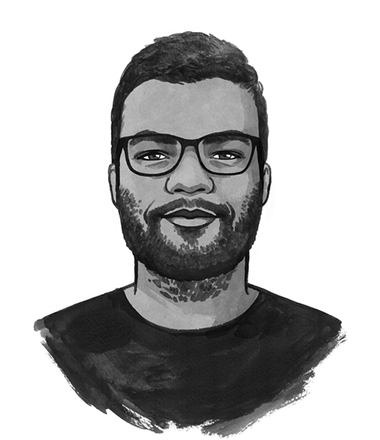Hi,
There’s a well-known paradox at the heart of the mental health conversation: the more complex and potentially more debilitating a condition, the less we talk about it. Mood disorders like depression and anxiety hog most of the space in casual conversations as well as in the media and popular culture. Psychoses? Nowhere near enough.
An obvious reason for this disparity is the relatively low incidence of, say, schizophrenia compared with depression. But a more insidious reason is the hierarchy of stigma. While all mental health conditions carry stigma, schizophrenia is far likelier to turn you into a social outcast than depression. (To be sure, depression has its own caste system. As I had earlier explored, senior citizens have been systematically excluded from the media’s depression coverage – even though depression is the most common geriatric mental disorder.)
Now, combine those statistical facts, and this is the equation you get:
Low incidence + high stigma = greater silence = higher risk of marginalisation ( = greater silence)
Taking a hammer to this vicious cycle isn’t easy. Breaking the conspiracy of silence around the least understood and most damaging mental conditions needs a giant push – a black swan event. Perhaps a pandemic that would make mental health – in all its complexity and diversity – irreversibly mainstream by ushering in a feeling of universal distress, while simultaneously making us more attentive towards each other’s very particular crises.
What we need is a year when the ever swelling per capita curiosity around mental health would prise open space for all hues of lived experiences – not just the most common ones.
2020 promised all that. But alas. It didn’t deliver.
‘Mental health is for everyone’: seductive but simply not true
The coronavirus pandemic fulfilled one half of the requirement: it made mental health mainstream. "There’s no health without mental health" and "Mental health is for everyone" became rallying cries, with unprecedented levels of scholarly as well as plebeian attention lavished on universal phenomena such as isolation, loneliness, and grief. Depression and anxiety made bigger strides towards shaking off the stench of taboo in just this one year than in decades before.
But the deluge of mental health-themed webinars, tweet storms, and editorials failed the other test: bringing the more severe mental health conditions out of the shadows.
Before Covid-19, the wants and needs of people with diagnoses such as schizophrenia rarely entered into increasing public discussion of mental health issues, said a June editorial in The Lancet Psychiatry. "Although the Covid-19 situation is frequently described as having changed everything, in some cases it has simply accentuated pre-existing trends – including neglect by the media, the public, and too many professionals of those with severe mental illness ... [T]here has been far too little space dedicated to the status of those with severe mental illness."
The sentiment that "mental health is for everyone" or "everyone has mental health" was meant to democratise the mental health conversation. But it ended up causing what Akiko Hart, CEO of the UK’s National Survivor User Network, calls the "conceptual dilution of mental health" – reducing mental health to a fuzzy abstraction that everyone can lay claim to, while drowning out the voices of those who most need help, and need it now.
"Mental health is for everyone" thus reinforced the exclusion of the people who have traditionally lacked representation – those we never include when we say "everyone". These are the people who will be left with permanent, uncared-for scars, even as most of us recover from what we will nostalgically revisit as a strange time.
In a brief but biting recent column, Hart writes:
"The push to democratise mental health as something which is shared by all, a collective humanity as it were, in fact only (re)creates new iterations of who is most worthy of support ... Some people have needs that aren’t met and aren’t even acknowledged – but the majority of oxygen goes to people who policy makers attempt to protect from losing something, rather than people who have already lost and are losing more."
In other words, the newly democratic mental health movement is still blighted by majoritarianism. In this schema:
Everyone ≠ all
Everyone = people like us
Full disclosure: I am not a fan of diagnostic labels as the only way of validating someone’s mental health struggles. Mental health is a spectrum. We are all on it somewhere. And it has no room for "us vs. them". However, as a depression and anxiety survivor who turned his lived experiences into fuel for his journalism, I need to do much more to help make this space truly inclusive and representative. Hopefully, I will do better thanks to the reminders served by people like Hart.
Until next week.
 Would you like this newsletter sent straight to your inbox?
Subscribe to my weekly newsletter where I dismantle myths around Sanity, discuss the best ideas from our members, and share updates on my journalism.
Would you like this newsletter sent straight to your inbox?
Subscribe to my weekly newsletter where I dismantle myths around Sanity, discuss the best ideas from our members, and share updates on my journalism.

